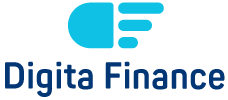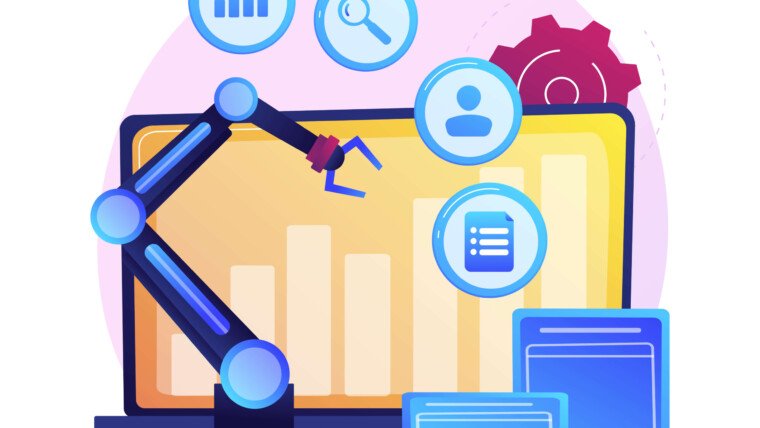The digital landscape of 2025 presents an unprecedented paradox. Technology offers more convenience, productivity, and connection than ever before, yet the cost of participation often involves surrendering personal data and decision-making autonomy to algorithms and corporations.
This tension between benefit and privacy has reached a critical point where individuals must become strategic about their digital choices rather than passively accepting whatever terms technology companies present.
The challenge isn’t avoiding technology altogether, which would mean missing out on legitimate advantages that improve quality of life and professional opportunities. Instead, success requires developing sophisticated approaches to engaging with digital tools while maintaining control over personal information and autonomous decision-making.
Understanding how to navigate this balance has become an essential skill for anyone who wants to thrive in our increasingly connected world without becoming a product themselves.
The Real Cost of “Free” Services
Most people underestimate the true price they pay for seemingly free digital services. Social media platforms, search engines, and productivity tools that don’t charge monthly fees are actually funded through extensive data collection and behavioral manipulation techniques.
These platforms develop detailed psychological profiles that extend far beyond basic demographic information. They track browsing patterns, purchase decisions, social interactions, location data, and even the speed at which you scroll through content to understand your preferences, vulnerabilities, and likely future behaviors.
The data collection often continues even when you’re not actively using the service. Background processes, tracking pixels embedded in emails, and cross-platform data sharing create comprehensive surveillance networks that monitor your activities across the entire internet.
This information becomes the foundation for targeted advertising, but it also influences what content you see, which products are recommended to you, and even which job opportunities appear in your search results.
Reclaiming Control Without Sacrificing Convenience
The key to maintaining autonomy while enjoying digital benefits lies in becoming an intentional user rather than a passive consumer of technology. This means making conscious choices about which services to use, how to configure them, and when to seek alternatives.
Privacy-focused alternatives to major platforms often provide similar functionality without extensive data collection. Search engines like DuckDuckGo, email services like ProtonMail, and messaging apps like Signal offer robust features while respecting user privacy.
Browser extensions and mobile apps can block trackers, encrypt communications, and prevent data collection from websites and services you do use. These tools require minimal technical knowledge but provide significant protection against passive surveillance.
Regular privacy audits of your digital accounts help identify services that collect more data than necessary for their stated function. Many platforms allow you to download copies of the data they’ve collected about you, which often reveals surprising amounts of personal information.
Strategic Data Sharing for Maximum Benefit
Complete data isolation isn’t realistic or desirable for most people. The goal should be strategic data sharing that provides genuine value while minimizing unnecessary exposure. This requires understanding what different services actually need to function effectively.
Navigation apps require location data to provide turn-by-turn directions, but they don’t need access to your contacts, photos, or browsing history. Social media platforms can connect you with friends without tracking your activities on other websites.
Granular privacy controls available in most modern applications allow you to grant specific permissions while denying others. Taking time to review these settings during initial setup prevents unnecessary data collection without sacrificing core functionality.
Regular review of these permissions ensures they remain aligned with your current needs and preferences. Apps often request additional permissions through updates, which users frequently accept without considering the implications.
Financial Technology and Data Protection
The financial technology sector presents unique challenges for balancing convenience with privacy. Banking apps, investment platforms, and payment services legitimately need access to sensitive financial information to function properly.
However, many fintech companies collect additional data that isn’t directly related to their core services. Purchase categorization, spending pattern analysis, and predictive financial modeling can provide valuable insights but also create detailed pictures of your lifestyle and priorities.
Understanding which financial data collection serves your interests versus the company’s marketing goals helps you make informed decisions about which features to enable. Budgeting tools and spending analysis can genuinely improve financial health, while lifestyle recommendations based on purchase data may primarily serve advertising purposes.
Regulatory frameworks like GDPR and CCPA provide some protection, but they require users to actively invoke their rights rather than automatically protecting privacy. Learning how to request data deletion, opt out of processing, and limit sharing can significantly reduce your financial data footprint.
Professional Networking and Career Autonomy
Professional networking platforms present particularly complex privacy trade-offs because career advancement often requires some level of professional visibility and data sharing. LinkedIn, industry-specific platforms, and professional databases can provide valuable opportunities while also creating detailed professional profiles.
The key is distinguishing between information that advances your career goals and data that primarily serves the platform’s commercial interests. Professional experience, skills, and industry connections directly support networking objectives, while detailed browsing behavior and personal interests may not.
Many professionals create separate personal and professional online presences to compartmentalize different types of data sharing. This approach allows for strategic career-focused sharing while maintaining privacy in other areas of life.
Regular review of professional profiles ensures they accurately represent your current goals and capabilities while removing outdated information that no longer serves your interests.
Educational Technology and Learning Privacy
Online learning platforms have exploded in popularity, offering unprecedented access to education and skill development. However, educational technology companies often collect extensive data about learning patterns, performance, and preferences.
Some data collection genuinely improves the learning experience through personalized recommendations and adaptive content delivery. Understanding which features rely on data analysis can help you make informed decisions about privacy trade-offs.
Progress tracking, performance analytics, and personalized study recommendations provide clear educational value. However, detailed behavioral monitoring during video consumption or extensive demographic profiling may serve primarily commercial purposes.
Many educational platforms offer varying levels of privacy protection, from anonymous learning modes to comprehensive data sharing agreements. Choosing the right level depends on your educational goals and privacy preferences.
Health and Wellness Data Considerations
Health and fitness applications can provide significant benefits for physical and mental wellbeing, but they also collect some of the most sensitive personal data. Medical information, fitness tracking, mental health monitoring, and lifestyle data create comprehensive health profiles.
Understanding the difference between local device processing and cloud-based analysis helps you choose tools that provide health insights without extensive data sharing. Many fitness trackers and health apps can function effectively while keeping sensitive data on your personal devices.
Healthcare privacy regulations provide stronger protections than general consumer privacy laws, but they don’t always apply to consumer health and wellness applications. Reading privacy policies specifically for health-related services helps identify potential risks.
Integration between health apps and healthcare providers can improve medical care, but it also creates additional data sharing pathways that may not be immediately obvious to users.
Building Long-Term Digital Resilience
Protecting data and autonomy in 2025 requires thinking beyond immediate privacy concerns to consider long-term digital resilience. This means developing skills and systems that can adapt to changing technology landscapes and evolving privacy threats.
Diversifying digital service providers reduces dependence on any single company’s policies and prevents vendor lock-in that can limit future choices. Using multiple email providers, cloud storage services, and communication platforms creates redundancy and flexibility.
Regular data backups and export procedures ensure you maintain control over your digital life even if service providers change policies or cease operations. Many platforms now provide data portability tools that make migration between services more feasible.
Staying informed about privacy legislation, technology developments, and security best practices helps you adapt your strategies as the digital landscape evolves.
The Economics of Privacy-First Choices
Choosing privacy-focused alternatives often involves trade-offs between convenience and cost. Understanding these economic dynamics helps you make sustainable decisions that balance privacy goals with budget constraints and practical needs.
Some privacy-focused services operate on subscription models rather than advertising-based revenue, which can provide better privacy protection but requires direct payment. Evaluating the true cost comparison between “free” services and paid alternatives often reveals that privacy-focused options provide better value.
Supporting businesses that prioritize user privacy through their purchasing decisions creates market incentives for more privacy-respecting alternatives to mainstream services.
The long-term financial benefits of maintaining data privacy, such as reduced exposure to identity theft and more control over personal information used in financial decisions, often justify the upfront costs of privacy-focused tools.
Future-Proofing Your Digital Strategy
The technology landscape will continue evolving rapidly throughout 2025 and beyond. Building adaptable approaches to data privacy and digital autonomy ensures your strategies remain effective as new platforms, regulations, and threats emerge.
Developing technical literacy in areas like encryption, data protection, and privacy tools empowers you to evaluate new services and make informed decisions about emerging technologies.
Creating personal policies for data sharing, service evaluation, and privacy protection provides consistent frameworks for navigating new digital choices as they arise.
For comprehensive strategies on balancing digital benefits with data protection and maintaining autonomy in our rapidly evolving technology landscape, DigitaFin.com offers expert insights and practical guidance for navigating the complex intersection of technology, privacy, and personal empowerment.
The goal isn’t to avoid all digital engagement but to approach it strategically, ensuring that the benefits you gain justify the privacy costs you pay while maintaining meaningful control over your digital life and decision-making autonomy.








Biometric Authentication: The Future of Banking Security
What is a Fintech Firm? Everything You Need to Know
The Future of Personal Finance: Autonomous Finance and AI Money Management
Quantum Computing in Finance: Revolutionizing Banking’s Tomorrow
Digital Twin Technology in Finance: How Virtual Models Are Transforming Risk Management
The Future of Personal Finance: Autonomous Finance and AI Money Management
AI Credit Scoring: Revolutionizing SME Banking and Digital Loans
AI Fraud Detection: How Banks Prevent Financial Crime in Real Time